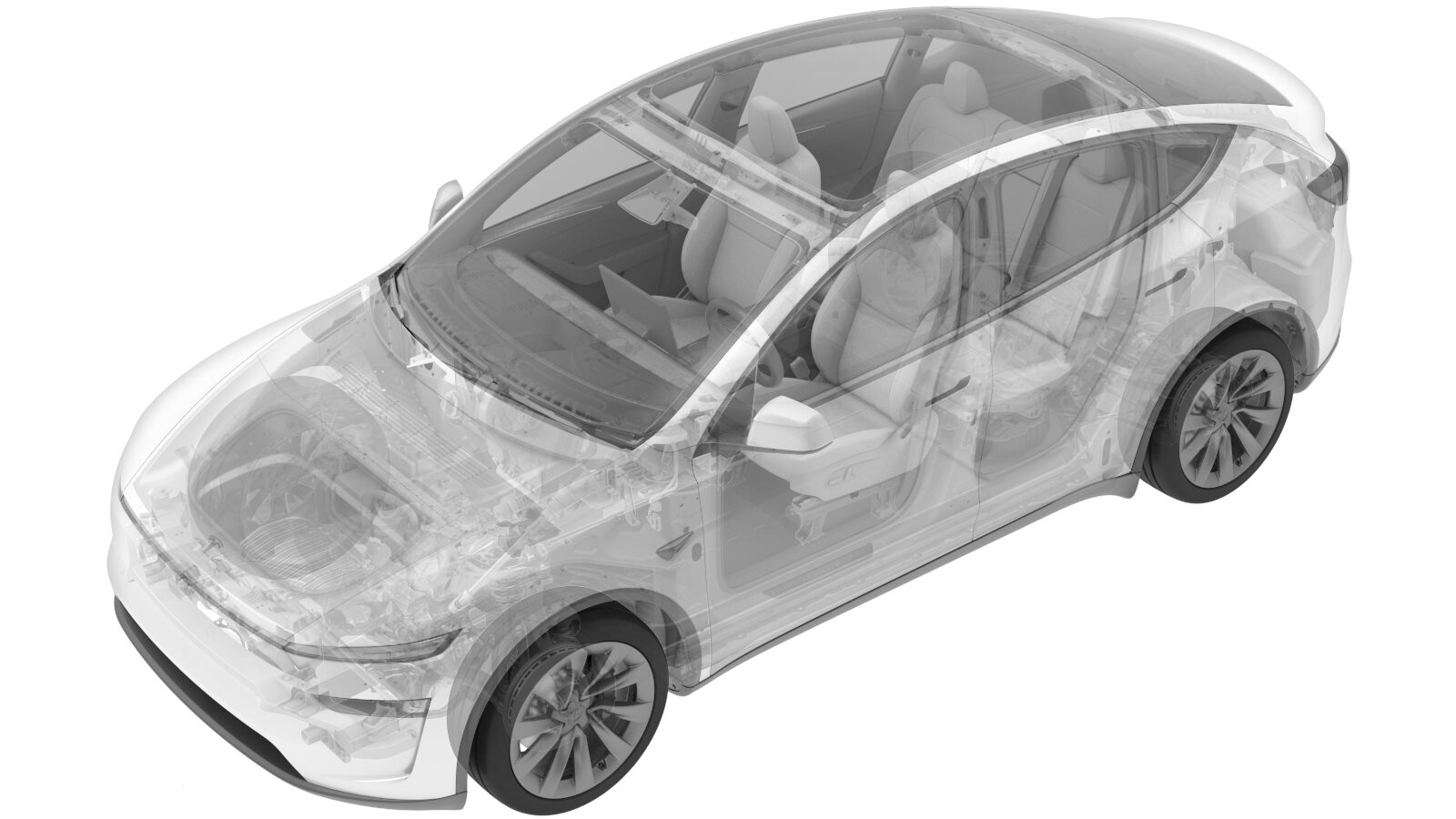DC Input Header -2P - 600V (Remove and Replace)
 Correction code
1630010802
FRT
1.26
NOTE: Unless
otherwise explicitly stated in the procedure, the above correction code and
FRT reflect all of the work required to perform this procedure, including
the linked procedures. Do
not stack correction codes unless explicitly told to do so.
NOTE: See Flat Rate
Times to learn more about FRTs and how
they are created. To provide feedback on FRT values, email ServiceManualFeedback@tesla.com.
NOTE: See Personal Protection
to make sure wearing proper PPE when performing the below procedure.
NOTE: See Ergonomic Precautions for safe and
healthy working practices.
Correction code
1630010802
FRT
1.26
NOTE: Unless
otherwise explicitly stated in the procedure, the above correction code and
FRT reflect all of the work required to perform this procedure, including
the linked procedures. Do
not stack correction codes unless explicitly told to do so.
NOTE: See Flat Rate
Times to learn more about FRTs and how
they are created. To provide feedback on FRT values, email ServiceManualFeedback@tesla.com.
NOTE: See Personal Protection
to make sure wearing proper PPE when performing the below procedure.
NOTE: See Ergonomic Precautions for safe and
healthy working practices.
- 2025-06-04: Added instruction to zero adjust the Hioki resistance meter prior to measurement.
Torque Specifications
| Description | Torque Value | Recommended Tools | Reuse/Replace | Notes |
|---|---|---|---|---|
| Bolt that secures the negative fast charge busbar inlet side and negative DC input assembly busbarBolt that secures the positive fast charge busbar inlet side and positive DC input assembly busbar |
 15 Nm (11.1 lbs-ft) - 180 degrees  5 Nm (3.7 lbs-ft) + 60 degrees |
|
Replace | |
| Bolt that secures busbar cover access door |
 9 Nm (6.6 lbs-ft) |
|
Reuse | |
| Bolts (X2) that secure charge port busbar kit to HV header |
 9 Nm (6.6 lbs-ft) |
|
Reuse | |
| Bolts (X4) that secure busbar DC input assembly to ancillary bay |
 10 Nm (7.4 lbs-ft) |
|
Reuse |
Remove
- Remove the pyro disconnect from ancillary bay. See Pyro Disconnect - HV Battery (Remove and Replace).
- Install pyro disconnect dummy.
-
Disconnect mega harness connector from DC input assembly.
-
Remove insulator for DC input assembly
from both fast charge busbar inlet side.
-
Remove and discard bolt securing
negative fast charge busbar inlet side and negative DC input assembly busbar.
TIpUse of the following tool(s) is recommended:
- Insulated tools:
- 13 mm socket
- Ratchet/torque wrench
- Insulated tools:
-
Remove and discard bolt securing
positive fast charge busbar inlet side and positive DC input assembly busbar.
TIpUse of the following tool(s) is recommended:
- 4 in extension
- 13 mm socket
-
Remove fastener securing busbar cover
access door.
TIpUse of the following tool(s) is recommended:
- Insulated tools:
- 10 mm socket
- Ratchet/torque wrench
- Insulated tools:
-
Remove bolts securing charge port
busbar kit to HV header.
TIpUse of the following tool(s) is recommended:
- 4 in extension
- 13 mm socket
-
Release LH body harness from rear body and move aside.
-
Partially remove LH B-pillar lower trim.
-
Partially pull out LH rear body harness.
-
Lift busbar kit connector to remove it
from HV header.
NoteUse inflatable air bag to suspend busbar away from HV header during removal and installation, hold busbar firmly as there is tension on, and avoid damaging the harness bracket.
-
Remove and discard bolts securing
busbar DC input assembly to ancillary bay.
TIpUse of the following tool(s) is recommended:
- Insulated tools:
- Ratchet/torque wrench
- Insulated tools:
-
Remove busbar DC input assembly from
ancillary bay.
Install
-
Install busbar DC input assembly to
ancillary bay.
NoteMake sure the seal is not damaged and seated properly.
-
Install the bolts (x4) securing busbar
DC input assembly to ancillary bay.
 10 Nm (7.4 lbs-ft)TIpUse of the following tool(s) is recommended:
10 Nm (7.4 lbs-ft)TIpUse of the following tool(s) is recommended:- Ratchet/torque wrench
-
Install and torque bolt securing
negative fast charge busbar inlet and negative DC input link to first value, loosen 180
degrees, and then torque to final value.
 15 Nm (11.1 lbs-ft) - 180 degrees
15 Nm (11.1 lbs-ft) - 180 degrees 5 Nm (3.7 lbs-ft) + 60 degreesTIpUse of the following tool(s) is recommended:
5 Nm (3.7 lbs-ft) + 60 degreesTIpUse of the following tool(s) is recommended:- 4 in extension
- 13 mm socket
-
Install and torque bolt securing
positive fast charge busbar inlet and positive DC input link to first value, loosen 180
degrees, and then torque to final value.
 15 Nm (11.1 lbs-ft) - 180 degrees
15 Nm (11.1 lbs-ft) - 180 degrees 5 Nm (3.7 lbs-ft) + 60 degreesTIpUse of the following tool(s) is recommended:
5 Nm (3.7 lbs-ft) + 60 degreesTIpUse of the following tool(s) is recommended:- 4 in extension
- 13 mm socket
- Perform a zero adjust of the Hioki resistance meter. See Resistance Meter (Zero Adjust).
-
Perform Hioki resistance test at both HV joints of DC input assembly busbar.
NoteThe maximum acceptable resistance is 0.060 mΩ (60 μΩ).Test from negative fastcharge busbar to negative DC input busbar and positive fastcharge busbar to positive DC input busbar.
-
Install insulator for DC input assembly to both fast charge busbars inlet side.
-
Connect mega harness connector to DC
input assembly.
- Clean HV connector contact surface of residual Penetrox.
- Clean busbar HV connector contact surface of residual Penetrox.
- Apply Penetrox onto HV connector joints.
- Remove Inflatable Air Bag from under HV header.
- Position busbar kit connector and lower onto HV header.
-
Install bolts securing charge port busbar kit to HV header.
 9 Nm (6.6 lbs-ft)TIpUse of the following tool(s) is recommended:
9 Nm (6.6 lbs-ft)TIpUse of the following tool(s) is recommended:- Insulated tools:
- Ratchet/torque wrench
- Insulated tools:
-
Perform Hioki resistance test at each
of the 2 HV joints from HV busbar lead to bolt head; acceptable resistance is 0.050 mΩ
(50 μΩ) to 0.195 mΩ (195 μΩ).
- If above 0.195 mΩ, stop work and escalate to Toolbox session;
- If below 0.050 mΩ, reposition probes and remeasure;
- If repeatedly between 0.00 mΩ and 0.050 mΩ, test passed, proceed to next step.
-
Install fastener securing busbar cover access door.
 9 Nm (6.6 lbs-ft)TIpUse of the following tool(s) is recommended:
9 Nm (6.6 lbs-ft)TIpUse of the following tool(s) is recommended:- Insulated tools:
- 10 mm socket
- Ratchet/torque wrench
- Insulated tools:
-
Remove pyro disconnect dummy.
- Install the pyro disconnect from ancillary bay. See Pyro Disconnect - HV Battery (Remove and Replace).